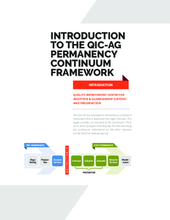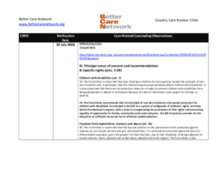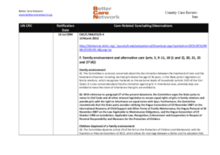Displaying 411 - 420 of 660
This brochure outlines adoption policy and procedure in Zambia, including a definition of adoption, how it works, its limitations, requirements for adopting a child, and other conditions.
This paper is an overview of QIC-AG’s permanency continuum framework. T
This bibliography, prepared by Professor David Powers of Cornell University, includes a list of resources and articles related to adoption within the context of Islam.
This paper examines whether policies that guide the termination of parental rights correspond to state adoption rate differences in the United States.
Using data from a national longitudinal survey of children referred to child protective services (NSCAW II), this article compares behavioral, child/caregiver relationship, and school performance outcomes for children residing in kinship and nonkinship settings.
In this study, clinical program directors from 59 residential treatment facilities in the US responded to an online survey addressing the representation of adopted youth currently being served by their organization, the extent to which adoption issues are incorporated into clinical intake and treatment processes, and the training needs of clinical staff related to adoption.
In this study, clinical program directors from 59 residential treatment facilities in the US responded to an online survey addressing the representation of adopted youth currently being served by their organization, the extent to which adoption issues are incorporated into clinical intake and treatment processes, and the training needs of clinical staff related to adoption.
This country care review includes the care related Concluding Observations adopted by the Committee on the Rights of the Child and the Committee on the Rights of Persons with Disabilities.
This country care review includes the care-related Concluding Observations adopted by the Committee on the Rights of the Child.
This country care review includes the care-related Concluding Observations adopted by the Committee on the Rights of the Child.





